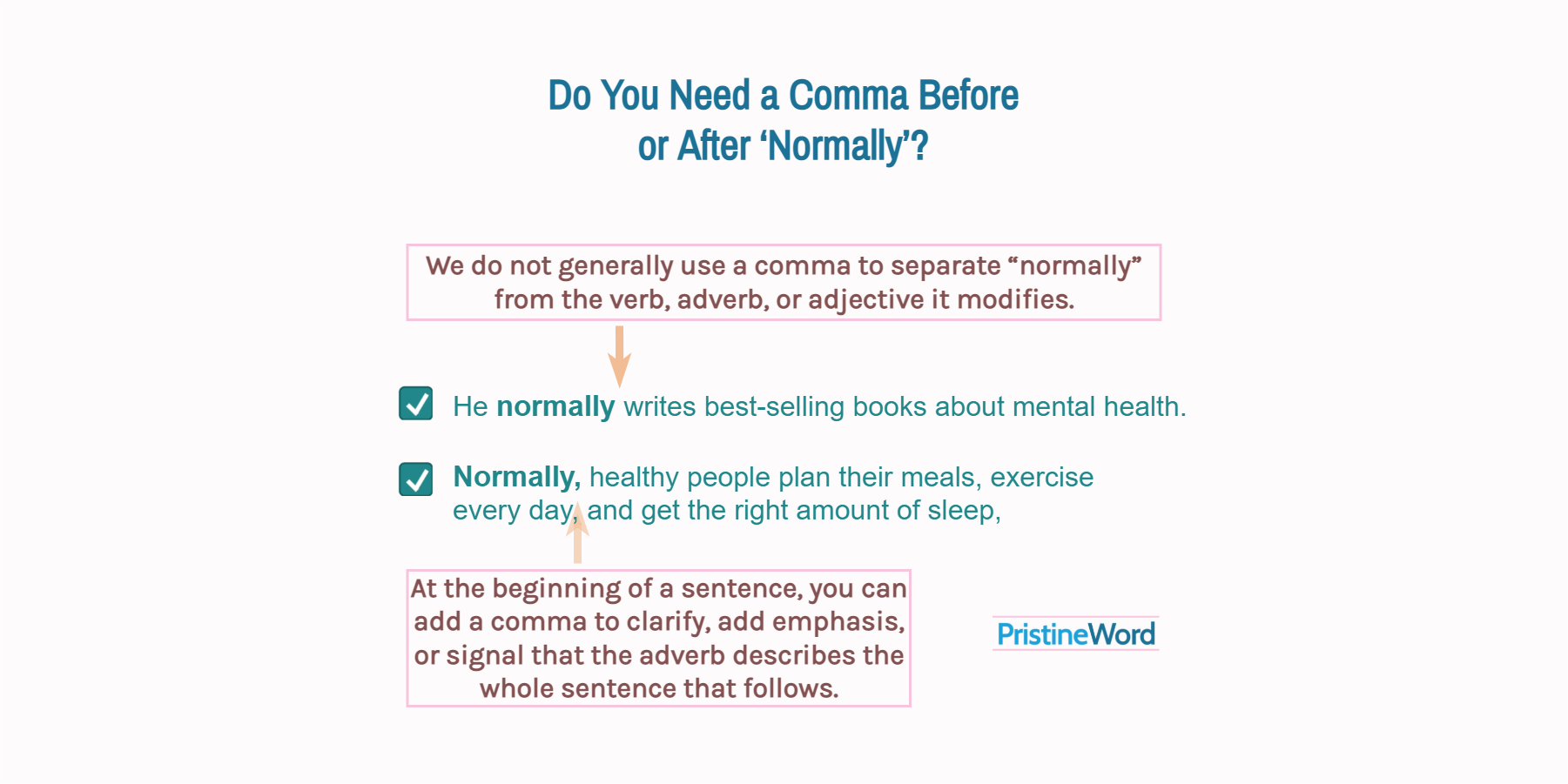We do not generally use a comma to separate “normally” from the word it modifies.
We do not generally use a comma to separate the adverb of frequency “normally” from the verb, adverb, or adjective it modifies.
He normally writes best-selling books about mental health.
However, when using it at the beginning of a sentence, you can add a comma to clarify, add emphasis, or signal that the adverb describes the whole sentence that follows.
Normally, healthy people plan their meals, exercise every day, and get the right amount of sleep,
Contents
1. Using ‘Normally’ to Modify an Adjective or an Adverb
“Normally” means “under usual conditions” or “in a normal way”. When modifying an adjective or adverb, “normally” comes immediately before the adjective or adverb.
I can tell you that Madrid is a safe and normally pleasant place to live. (Modifying the adjective “pleasant”)
We do not typically use a comma to separate "normally" from the word it describes.
Normally very cold and snowy, winters in Nebraska can be extremely harsh. (Modifying the adverb “very”)
2. Using ‘Normally’ to Modify a Verb
Adverbs of frequency, such as “normally”, are commonly placed in mid-position (after the verb to be, before the main verb, or after the first auxiliary verb).
The list is normally short. (After the verb to be)
He normally writes and directs his films. (Before the main verb)
He doesn’t normally arrive late. (After the first auxiliary verb)
The adverb “normally”, however, is highly mobile and can be used in different positions. At the end of a sentence, for example, the comma is optional. It may come across as an aside or an afterthought.
I try to avoid tourists and crowds, normally.
In front position the comma is usually optional, but it should be used to add emphasis, avoid confusion, or indicate that “normally” describes the whole sentence that follows.
Normally, intelligent people are flexible in their thinking and can adapt to rapid changes.
Normally, we prefer going outdoors to staying at home.
The comma can be easily dropped if the sentence is clear.
Normally I don’t drink coffee in the evening.
But use a comma if a dependent clause or a question follows the adverb.
Normally, because caffeine can disrupt your sleep, I don’t drink coffee in the evening.
Normally, do you enjoy playing video games?

